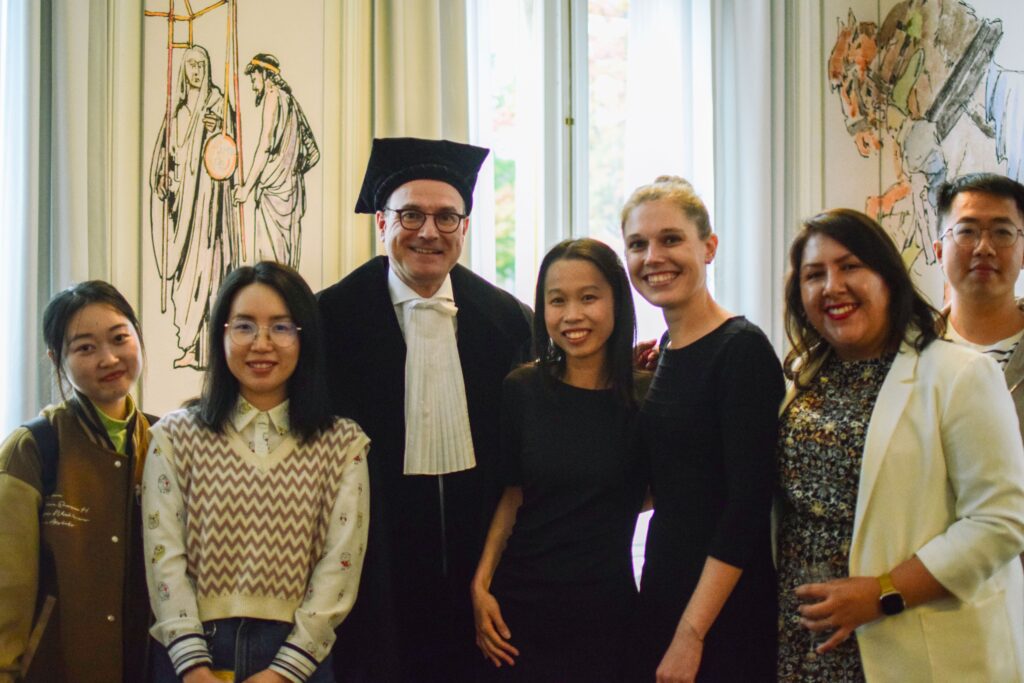PhD defense of Xinwei Ye
Xinwei Ye has successfully defended her PhD thesis. Her supervisor was Prof. Bert Weckhuysen and Dr. Florian Meirer. Congratulations on this achievement!
Combustion of diesel fuel in automotive engines leads to the formation of nitrogen oxides (NOx) that are harmful to the environment. The Selective Catalytic Reduction (SCR) is a promising process to minimize tailpipe NOx emissions and meet increasingly strict environmental regulations. During the SCR process, NOx is reduced with ammonia producing nitrogen gas and water.
Cu-exchanged zeolites are potential SCR catalysts for practical use due to the wide operational temperature window. However, aging and degradation of the catalysts is inevitable in the harsh hydrothermal tailpipe environment. The aim of this thesis is to understand the detrimental effects of hydrothermal aging to the Cu-exchanged zeolites trying to obtain fundamental insights on the reaction mechanism and deactivation pathways.
By means of ex situ and operando spectroscopies, the dynamics of reaction intermediates and Cu species were followed under NH3-SCR reaction conditions and did reveal a complex interplay between the local structure of zeolite framework and active Cu species within the catalysts. Novel microscopes have pushed the boundaries of nanoscale imaging by visualizing individual atoms of Cu and Al, allowing to study the zoning of both Cu and Al species at the edge of an aged catalyst particle. The aggregation of active Cu species leads to the loss of activity and the production of undesired byproducts. The results highlight the importance of hydrothermally stable active sites ensuring high catalytic activities during the entire catalysts lifetime. The results described in this thesis are highly relevant for the development of new generations of NH3-SCR catalysts.

